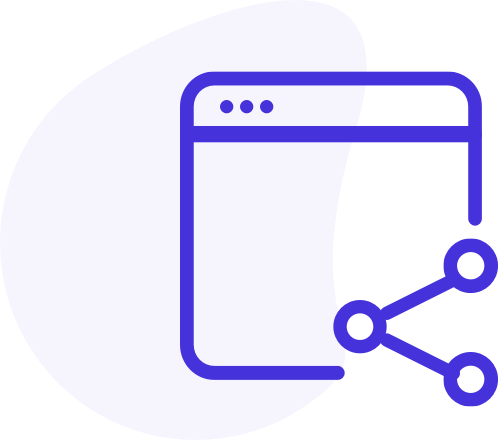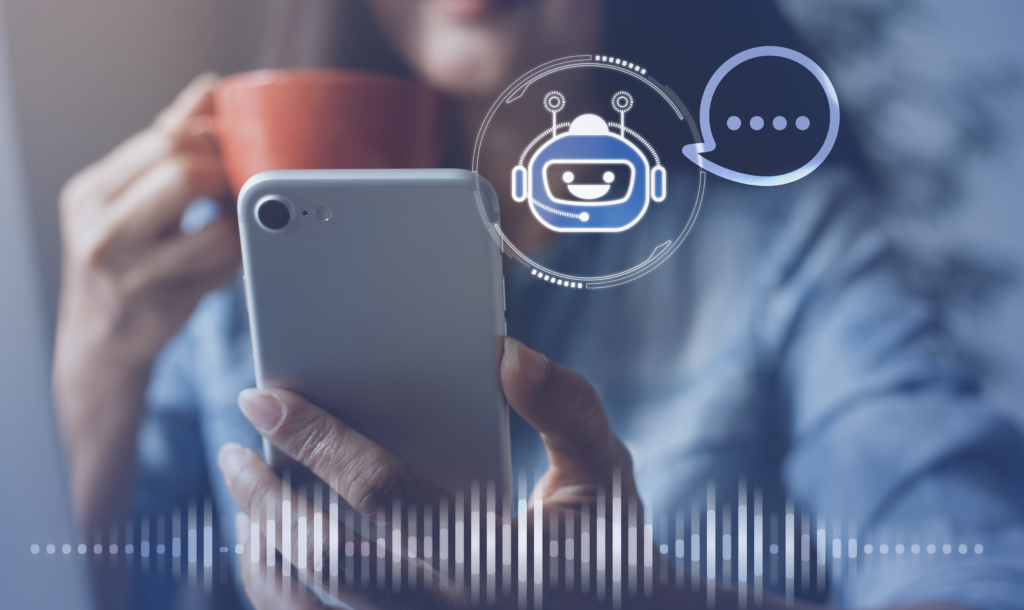Intelligent AI powered Chatbots are a form of artificial intelligence and are predicted to become one of the ruling customer service channels by 2027 [1]. They are being used to revolutionize businesses all over the world and emerging in more business sectors by the second. A Gartner customer service and support survey conducted online in January and February 2022 revealed 54% of respondents are using some form of Chatbot or other forms of Conversational AI platforms for customer-facing applications. [1]
So, let’s answer some commonly asked question about Chatbots!
1. What is a Chatbot?
A Chatbot is a computer program that stimulates interaction between humans and software. The purpose of a Chatbot is to provide more advanced customer support by performing tasks more efficiently, removing the cost of human services, and reducing manual error, playing a significant role in customer service satisfaction levels. Chatbots work by responding to requests, using pre-programmed scripts and algorithms. This can be done via voice activation, virtual assistant agents on live chats, websites, and mobile apps. Common Chatbots include Facebook, WhatsApp, and Google.
2. What is the difference between a regular Chatbot and an AI powered Chatbot?
Whilst Chatbots and AI powered Chatbots are related, they are not the same.
The main difference between a chatbot and an AI powered chatbot is the level of intelligence and ability to understand and process natural language. A chatbot is a computer program that uses a pre-determined set of rules and keywords to respond to user inputs, while an AI powered chatbot uses artificial intelligence to understand and interpret user inputs, allowing it to respond in a more human-like manner.
3. How do AI powered Chatbots successfully impact businesses?
AI powered Chatbots can impact businesses in many of the same ways as regular Chatbots, but with the added benefit of being able to understand and interpret natural language in a more human-like manner. This allows them to provide more personalized and accurate responses to customer inquiries, and can help to improve the overall customer experience. Additionally, AI Chatbots can learn and adapt over time, becoming more intelligent and effective at handling customer interactions.
This can help businesses to improve their efficiency and productivity by reducing the need for human resources and can lead to increased customer satisfaction and loyalty by providing a consistent, high-quality service around the clock.
4. Alexa and Siri – Considered Chatbots?
Alexa and Siri are not Chatbots, but rather “command and response” virtual assistants.
While Chatbots are designed to communicate with users through voice, text or messaging platforms to perform various business functions, assistants such as Alexa or Siri are typically voice-activated and use natural language processing to understand and respond to simple, linear user requests.
The main implementation of these devices currently is typically to provide answers to simple questions or integrated into consumer smart home devices to control various aspects of the home.
With the advancement of AI powered Chatbots, we expect to see these technologies being integrated more deeply to provide business solutions and are already witnessing some exciting implementations to improve access to information for visually impaired people and even as “in ward” assistants to nurses.
5. Do AI Chatbots collect data?
AI Chatbots, like other AI systems, are able to collect data from multiple data sources, such as Databases, CRM and other business systems, as well as through their interactions with users. This data can be used to improve the Chatbot’s performance and accuracy by allowing it to learn from its past interactions and adapt to new input, providing the user with hyper-personalized experience.
The specific data that an AI Chatbot collects will depend on its intended use and the type of information it is designed to gather. For example, a customer service chatbot may collect data on common customer inquiries and the responses that it provides, while a Chatbot used for personal assistant tasks may collect data on the user’s preferences and habits.
The more data collected, the better the effectiveness of the Chatbot becomes and in turn, generates more appropriate responses.
In simple implementations, whilst data may be processed through an AI powered Chatbot, data need not be collected or stored.
It is important for businesses to have clear policies in place regarding the collection and use of this data, and to ensure that they are complying with relevant privacy laws and regulations.
In a world that is evolving and becoming more reliant on technology, businesses are becoming more reliant on Chatbots to expand and retain their customer base. According to Juniper Research, the number of voice assistants used by consumers globally will rise to 8 billion by 2023 [2]. Chatbots in 2023 will accommodate many mobile devices, so businesses must implement a voice-enabled chatbot for their business.
Conversational AI with OpenDialog
Our AI powered Chatbots and intelligent Virtual Assistants make it easier to automate, scale and manage complex business processes without losing a human-like touch. With the ability to complete 80% of work without human intervention, v the industry average of 30%, our Conversational AI platform enables businesses to deliver hyper-personalized and engaging interactions for your customers, improves service quality and increases ROI.

Reduce Cost of Operations

Increase
Revenues

Improve Customer Experience




